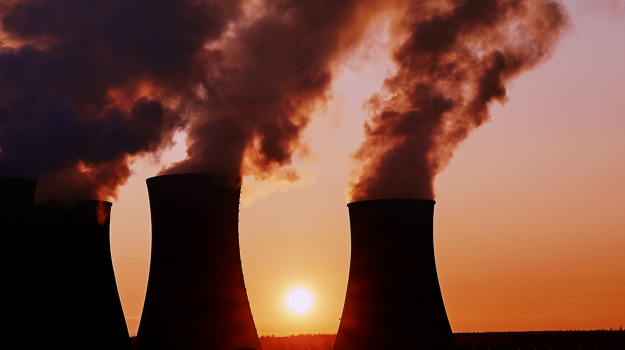
Making a strong case against Nersa, power utility argues that regulator overstepped its legal mandate in focusing on tariff affordability rather than cost management.
Eskom dropped a bombshell in court last week about the manner in which it views the methodology that the National Energy Regulator of SA (Nersa) uses to determine electricity tariff increases.
If the court accepts Eskom’s arguments about the need for a much narrower application of the tariff methodology, the additional R69 billion it currently wants from consumers could pale in insignificance compared with future demands, given the utility’s track record of poor management.
Eskom’s application, which would have the effect of forcing consumers to cough up an additional R69 billion in electricity tariffs over the next three financial years, was heard in the Pretoria High Court by Judge Jody Kollapen on Wednesday.
If it is successful, power tariff increases for this year and next year will have to be set at 16% to make up the shortfall.
Currently, they are set to increase by only 8.1% in April and 5.22% a year later.
Nersa subtracted the R69 billion from Eskom’s allowable revenue in light of the fact that this was the amount of money that government had promised to make available to Eskom in the current financial year as well as the following two financial years.
This lifeline was meant to help Eskom reduce its debt burden, but in effect, Nersa had converted it into a subsidy for consumer tariffs.
This had never been the intention of the legislature, Matthew Chaskalson SC, Eskom’s advocate, argued in court last week.
In determining the power utility’s revenue for the three-year period, Nersa initially considered a return of 7.5% on Eskom’s assets.
For reasons that Chaskalson said were unclear, Nersa then adjusted it to 1.5%, which would require a 22.9% tariff increase.
According to the regulator, this would be unaffordable for consumers.
Nersa then decided to deduct the R69 billion, which it found out about in the media, from Eskom’s allowable revenue. This adjustment meant that the increase was limited to 9.41%.
Nersa is relying heavily on the methodology it developed to determine tariffs.
It emphasises that it is aimed at preventing Eskom revenue from being excessive or inadequate, and at apportioning the risk between Eskom and its client appropriately.
Against this background, said Nersa, it tested the reasonableness of Eskom’s allowable return on assets as well as the tariffs, and found that Eskom’s return was too high and that the tariffs would be unaffordable if the adjustment was not made.
However, Chaskalson emphasised that this methodology was subject to the Electricity Regulation Act.
The act determines that Nersa must enable an effective licence holder (Eskom) to recover the full costs of its licence activities and a reasonable profit margin or return from tariffs.
He emphasised that this was not optional and had to be applied strictly. Once the formula is applied, that is the end of the story.
So, it was not up to Nersa to meddle with the amount that was due to Eskom once it had been determined, said Chaskalson.
With the approval of the law, the legislator intended that the full costs of electricity supply should be recovered through tariffs, not subsidies. “That is the system, whether we like it or not,” Chaskalson said.
In reality, he argued, Nersa had used the R69 billion to subsidise electricity tariffs.
The Nersa adjustment had also left Eskom with a negative return, which was contrary to the act, argued Chaskalson.
“A negative return is no return.”
Kollapen said Chaskalson’s argument would mean that the focus on affordability of electricity tariffs during public hearings on Eskom’s tariffs would therefore be inappropriate, and that participants should rather focus on whether Eskom’s costs were being effectively managed.
“That is my submission,” Chaskalson argued. “The public hearings are not irrelevant; they must influence the figure in terms of effectiveness.”
In an interview with City Press’ sister publication, Rapport, MC Botha, an attorney in Port Elizabeth who is closely involved with litigation about power tariffs, said the return had to be determined on reasonable grounds, taking into account the fact that Eskom was a state monopoly.
Given the fact that risk for a state monopoly was generally lower than for a private company, the return would also be lower.
“So, 7.5% does not sound unreasonable,” he said.
Botha said that return tariffs for organs of state and state-owned enterprises were determined by economists on a regular basis, and that appropriate or comparable tariffs were readily available.
He agreed with the interpretation that Nersa’s powers had to be limited to a determination of Eskom’s costs, to ensure that only expenses were taken into account, alongside a reasonable return.
Morne Mostert, manager of local government at AfriForum, also attended the court proceedings.
He said Eskom was asking for a very narrow interpretation of Nersa’s legal framework, one that could leave consumers considerably more exposed.
 | ||||||||||||||||||||||||||
Get in touchCity Press | ||||||||||||||||||||||||||
| ||||||||||||||||||||||||||
| Rise above the clutter | Choose your news | City Press in your inbox | ||||||||||||||||||||||||||
| City Press is an agenda-setting South African news brand that publishes across platforms. Its flagship print edition is distributed on a Sunday. |




 Publications
Publications
 Partners
Partners








